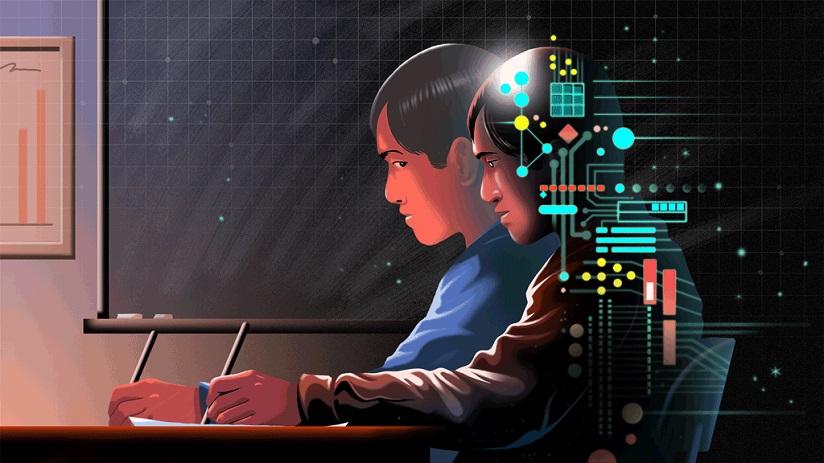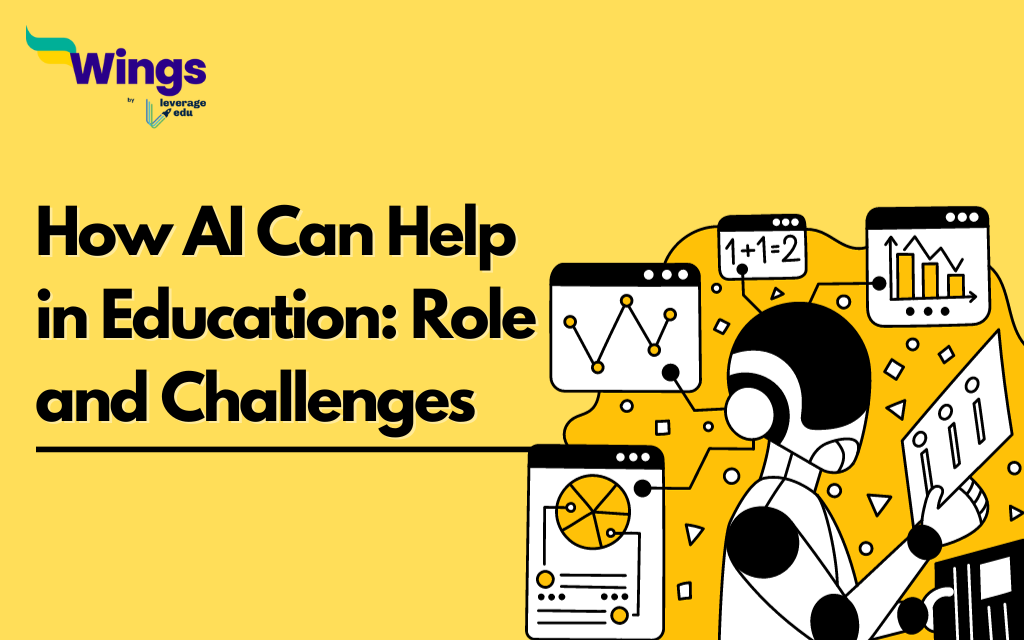What’s come to your mind when you hear the term ‘Artificial Intelligence’? The majority of people think of robots and supercomputers. Are you one of them? AI is more than robots, supercomputers or quantum tech. Today, one of the most popular AI tools ChatGPT is disrupting all kinds of industries but none more than education. 60% of US college students say their teachers haven’t advised them on using AI in education ethically and responsibly.
Some of the best AI tools for education are Canva Magic Pen, Grammarly, Cognii, etc. There is no harm in taking help from AI tools for studying but it’s important for both learners and educators to formally apply AI to educational support, tutoring, and learning management systems. Digital tutoring systems, learning management platforms, and smart devices are some of the AI startups that make up the growing AI education market. The AI education industry is expected to reach US$ 20 billion by 2027, according to a new research report by Global Market Insights. Continue reading this blog to learn how AI can help in Education.
Contents
Don’t Forget to Watch these Top 6 Documentaries on Artificial Intelligence!
Also Read: AI in Education: Speech on Importance and Benefits of AI

Role of AI in Education
Post the COVID-19 pandemic, the world witnessed a huge surge in digital education. Artificial Intelligence has played a huge role in education by changing traditional teaching and learning methods. Its adaptability and personalized approach prioritize a student’s needs to create a more efficient and engaging learning experience.
Through wise algorithms, AI can analyze a student’s learning style, pace, and comprehension levels to make curriculums and assessments accordingly. This level of personalization ensures that each student receives the support they need. Apart from helping learners, AI also empowers educators by automating administrative tasks, providing data-driven insights, and suggesting targeted interventions for struggling students. This helps teachers dedicate more time and attention to personalized instruction for a deeper understanding of concepts.
One of the best things about AI in Education is accessibility and inclusivity. AI offers tools like speech-to-text and text-to-speech free to break down barriers for students with different learning needs.
Read this blog to learn about Applications of Artificial Intelligence
AI for Educators
Here’s how AI can help educators create an effective classroom teaching environment:
- AI can analyze individual students’ learning patterns and preferences, allowing educators to create lesson plans and materials to suit each student’s needs. This leads to better engagement and understanding.
- AI can handle administrative tasks like grading assignments, organizing schedules, and even generating reports. This helps in cutting educators’ time to focus on teaching and mentorship.
- AI-powered assessment tools can assist in creating educational content, including worksheets, quizzes, and interactive materials.
- AI can detect early signs of academic challenges or special learning needs that can help educators provide timely interventions and support to struggling students.
- AI can assist in translating educational materials into different languages to make content more accessible to diverse students.
AI Education Made Easy: Professors Embrace ChatGPT to Prepare Tomorrow’s Innovators
AI for Students
Here’s how AI can help students in learning:
- AI can understand a student’s learning style and pace to provide customized resources and exercises that align with their strengths and weaknesses.
- AI chatbots or virtual tutors can offer instant help and explanations on a wide range of subjects so that students have access to assistance whenever they need it.
- AI-driven apps and platforms can provide intelligent study aids, like flashcards, practice tests, and interactive simulations to help students grasp concepts more effectively.
- AI can provide detailed feedback on assignments, highlighting areas for improvement and offering suggestions to improve learning.
- AI can offer specialized support for students with learning disabilities or special needs, providing additional resources and adapting materials to their requirements.
Want to make school activities fun yet informative? Try these 5 STEM Activities Ideas for School Students
Challenges of AI in Education
Implementing AI into education requires a lot of thoughtful planning and ongoing evaluation to ensure its benefits are maximized while potential drawbacks are reduced. Here are some of the major challenges you may face when implementing AI in education:
- Not all students or educational institutions have equal access to advanced technology. This creates a digital divide, where some students may benefit disproportionately from AI-powered tools while others are left behind. Ensuring equitable access to AI-driven educational resources is a critical challenge.
- AI systems in education often rely on collecting and analyzing large amounts of student data. Safeguarding this data from breaches, unauthorized access, or misuse is a significant concern. Striking a balance between utilizing data for personalized learning and protecting individual privacy is crucial.
- AI algorithms can unintentionally have biases present in the data they are trained on. In education, this can lead to disparities in learning experiences and outcomes, particularly for marginalized groups. It’s essential to carefully design and monitor AI systems to mitigate bias and ensure fairness.
- Many educators may not be familiar with AI technologies or how to effectively integrate them into their teaching practices. Providing adequate training and professional development opportunities for teachers is crucial for the successful implementation of AI in education.
- As AI systems become more integral to education, questions of responsibility and accountability arise. Decisions made by AI, especially those impacting students’ academic paths, need to be transparent and subject to human oversight. Establishing ethical guidelines and accountability frameworks is essential.
Check out the Top Artificial Intelligence Courses in India!
Explore more interesting reads in Education:
| Formative and Summative Assessment: What is the Difference? | Importance of Reading for Students |
| Learning Outcomes in Teaching: Types, Benefits and Characteristics | What is Financial Literacy for Students |
FAQs
Ans: AI can analyze individual learning styles and pace to create content and assessments for a more effective and engaging learning experience.
Ans: AI provides valuable insights from data analytics, helps automate administrative tasks, and offers resources for content creation, allowing educators to focus on personalized instruction.
Ans: Yes, AI-driven tools like speech-to-text and text-to-speech, along with adaptive learning platforms, can make educational content more accessible to students with diverse learning needs.
Follow Leverage Edu for more interesting and informative articles on school education.


 One app for all your study abroad needs
One app for all your study abroad needs












 60,000+ students trusted us with their dreams. Take the first step today!
60,000+ students trusted us with their dreams. Take the first step today!